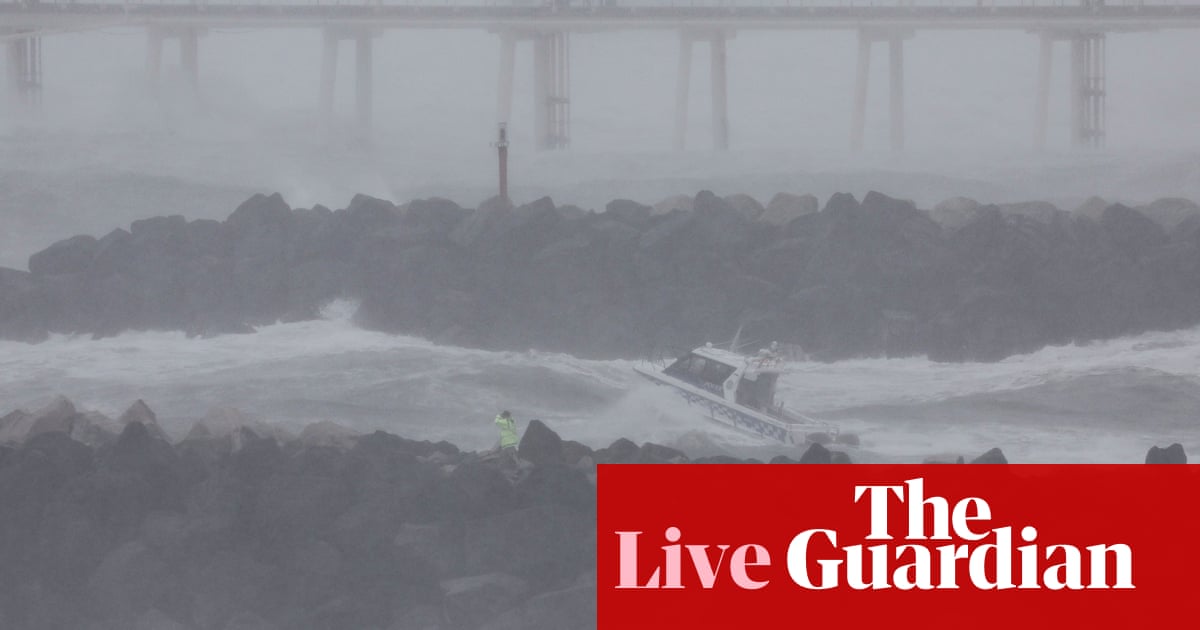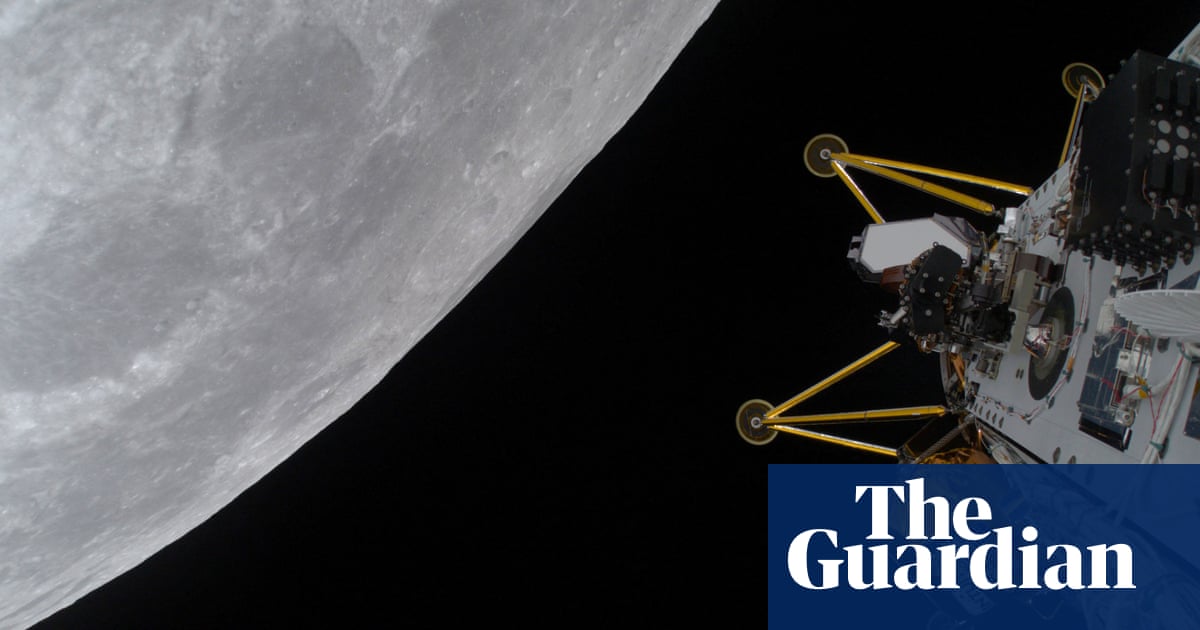In his first three days at sea, Aurimas Mockus says, he got only five hours of sleep. His body ached and his hands were covered with wounds and blisters.
But alone in the middle of the Pacific Ocean, facing up to eight months of rowing, pain quickly turned to “nothing”, the Lithuanian said in a media release.
“When you’re in survival mode in a stressful situation, when you realise that you must paddle with all your might and that there’s no other way to do it, you just paddle, forgetting everything else.”
Just a few months ago, Mockus, 44, had never rowed. Now he has been at sea for more than a month, having set off on 15 October to undertake a 12,000km journey from San Diego to Brisbane in a single-seater ocean rowing boat.
This week Mockus is about a quarter of the way into the journey – 4,000km in, still well to the south-east of Hawaii. He has five to seven months of rowing to go, “depending on how well I manage to keep up the pace as I paddle across the ocean and how many storms, cyclones, adverse winds and other adversities I must overcome,” he said in an email last this month using limited satellite internet.

If Mockus arrives in Australia, he will become the first person in the world to row across the Pacific on this route, he says. He will join a small group who have crossed the Pacific single-handed, including the Britons Peter Bird in 1983 and John Beeden in 2015, and the Australian Michelle Lee in 2023.
Last year 24-year-old Tom Robinson attempted the feat but was rescued by a P&O Cruise after his boat capsized. In 2020 the Paralympic rowing star Angela Madsen died while attempting a solo journey from California to Hawaii.
Unfavourable winds and very little sleep
Mockus said he had to row continuously for 22 hours to avoid being blown back to shore in his first three days at sea.
“I had a hell of a week,” he said in an email. “[I] felt like a zombie.”
Wary that it would only take one strong wind to carry his boat off course, “there wasn’t much time to rest”, he said.
The effort continued in the two weeks that followed.
“Unfavourable winds can cause surprises and sleepless nights and require a lot of strength to get out of them,” Mockus said.
He has been living off porridge, soup, dried fruit, nuts, vacuum-sealed meats, preserves and bars.
The boat’s hold is carrying enough food to last eight months, plus vitamin drinks and mineral water. If his water supply runs out, he plans to use a seawater desalination unit.
Mockus says he has encountered few health problems so far.
“Maybe my hands are a bit numb at night from the exertion, my shoulder joints are sore, but there are no major health problems, no inflammations,” he said in a media release.
He rows naked most of the time – “so I don’t have any problems with my buttocks, and the good news is that I’ll be back with a nice tan”.
And, in case of emergencies, Mockus has a beacon, a life raft and a survival pack – all of which he hopes he won’t need.
But feeling homesick has not evaded him.
“I have noticed that this strong homesickness and loneliness comes at sunset when I finish paddling and start to tidy up, which is when it is the hardest,” the release said.
“Of course, I knew before the trip that one of my biggest challenges would be enduring that loneliness, which is depressing.
“When I have an hour of internet, I try to listen to the voice messages of my family and friends through it.”
Mockus noticed small signs of potential equipment failure even in the first few weeks.
“I already had a problem with one of the lithium-ion batteries, which was almost completely dead, but suddenly recovered,” he said in a media release. “I’m limiting the use of satellite internet and autopilot to save them because it’s a long way to go.
“I can’t afford to be without the life-giving batteries that keep the equipment running.”
But the most significant loss has been an oar, which broke on Mockus’s 35th day of rowing from the impact of a wave.
“You can’t joke with the ocean when the wind blows over 27 knots overboard, and the waves are more than six meters tall,” he said in a media release.
“The weather conditions were not very kind, but I dared to paddle because sitting and waiting is difficult.
“This had consequences,” he said, “One unexpected side wave caught me off guard and broke my paddle. Now, there are five paddles left.”
Mockus describes the world’s largest ocean as “unpredictable and mighty”.
“You must respect this element and try to survive it and not make mistakes that could cost you dearly,” he said in an email.
“One careless step in a swell could break an arm, a leg, or twist your neck,” he says. “Reefs, where underwater islands have formed, are hazardous because of breaking waves and other dangers.”
Mockus tries to stay a safe distance from islands and islets, “but you never know how it will end if the wind blows harder for a longer period”.
Despite the ever present danger, there have also been pleasant surprises.
“I was accompanied by large groups of dolphins and seals all week off the coast of San Diego,” he said in a media release earlier this month. “I heard whales diving nearby, but you can’t see much more than a few tens of meters from the boat at night, so I didn’t see them with my own eyes. I hope there will be another chance.”

‘I wanted to dedicate my rowing to Ukrainians’
Mockus set up his boat almost from scratch – buying only the hull and instruments.
He also had to learn proper rowing techniques.
Part of his motivation was to draw attention to the conflict in Ukraine, having previously raised funds to support Ukrainian soldiers and civilians, and transported humanitarian aid to the war zone, according to his website.
“I know it won’t be easy, but it’s not easy for the people who defend their country either, so I wanted to dedicate my rowing to Ukrainians,” he said in an email.
“I decided to remind the world that the war is not over … We must remember the first day of the war, how we felt, and how afraid we were.
“We cannot get tired because people in Ukraine fight every day and die defending their Motherland.”
He says: “I had nothing to do with rowing before … I aim to show that a simple, determined person can cross the ocean.
“The most important thing is the desire to overcome and to force yourself to do what you want.”

 3 months ago
50
3 months ago
50













































